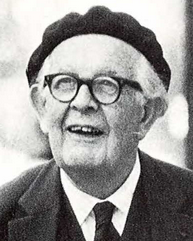Related Research Articles

Developmental psychology is the scientific study of how and why humans grow, change, and adapt across the course of their lives. Originally concerned with infants and children, the field has expanded to include adolescence, adult development, aging, and the entire lifespan. Developmental psychologists aim to explain how thinking, feeling, and behaviors change throughout life. This field examines change across three major dimensions, which are physical development, cognitive development, and social emotional development. Within these three dimensions are a broad range of topics including motor skills, executive functions, moral understanding, language acquisition, social change, personality, emotional development, self-concept, and identity formation.
Language acquisition is the process by which humans acquire the capacity to perceive and comprehend language. In other words, it is how human beings gain the ability to be aware of language, to understand it, and to produce and use words and sentences to communicate.

Jean William Fritz Piaget was a Swiss psychologist known for his work on child development. Piaget's theory of cognitive development and epistemological view are together called genetic epistemology.

Jerome Seymour Bruner was an American psychologist who made significant contributions to human cognitive psychology and cognitive learning theory in educational psychology. Bruner was a senior research fellow at the New York University School of Law. He received a BA in 1937 from Duke University and a PhD from Harvard University in 1941. He taught and did research at Harvard University, the University of Oxford, and New York University. A Review of General Psychology survey, published in 2002, ranked Bruner as the 28th most cited psychologist of the 20th century.

Piaget's theory of cognitive development, or his genetic epistemology, is a comprehensive theory about the nature and development of human intelligence. It was originated by the Swiss developmental psychologist Jean Piaget (1896–1980). The theory deals with the nature of knowledge itself and how humans gradually come to acquire, construct, and use it. Piaget's theory is mainly known as a developmental stage theory.
Cognitive development is a field of study in neuroscience and psychology focusing on a child's development in terms of information processing, conceptual resources, perceptual skill, language learning, and other aspects of the developed adult brain and cognitive psychology. Qualitative differences between how a child processes their waking experience and how an adult processes their waking experience are acknowledged. Cognitive development is defined as the emergence of the ability to consciously cognize, understand, and articulate their understanding in adult terms. Cognitive development is how a person perceives, thinks, and gains understanding of their world through the relations of genetic and learning factors. There are four stages to cognitive information development. They are, reasoning, intelligence, language, and memory. These stages start when the baby is about 18 months old, they play with toys, listen to their parents speak, they watch TV, anything that catches their attention helps build their cognitive development.
Arnold Lucius Gesell was an American psychologist, pediatrician and professor at Yale University known for his research and contributions to the fields of child hygiene and child development.
In developmental psychology and developmental biology, a critical period is a maturational stage in the lifespan of an organism during which the nervous system is especially sensitive to certain environmental stimuli. If, for some reason, the organism does not receive the appropriate stimulus during this "critical period" to learn a given skill or trait, it may be difficult, ultimately less successful, or even impossible, to develop certain associated functions later in life. Functions that are indispensable to an organism's survival, such as vision, are particularly likely to develop during critical periods. "Critical period" also relates to the ability to acquire one's first language. Researchers found that people who passed the "critical period" would not acquire their first language fluently.
In the field of psychology, nativism is the view that certain skills or abilities are "native" or hard-wired into the brain at birth. This is in contrast to the "blank slate" or tabula rasa view, which states that the brain has inborn capabilities for learning from the environment but does not contain content such as innate beliefs. This factor contributes to the ongoing nature versus nurture dispute, one borne from the current difficulty of reverse engineering the subconscious operations of the brain, especially the human brain.
Evolutionary developmental psychology (EDP) is a research paradigm that applies the basic principles of evolution by natural selection, to understand the development of human behavior and cognition. It involves the study of both the genetic and environmental mechanisms that underlie the development of social and cognitive competencies, as well as the epigenetic processes that adapt these competencies to local conditions.
The generative approach to second language (L2) acquisition (SLA) is a cognitive based theory of SLA that applies theoretical insights developed from within generative linguistics to investigate how second languages and dialects are acquired and lost by individuals learning naturalistically or with formal instruction in foreign, second language and lingua franca settings. Central to generative linguistics is the concept of Universal Grammar (UG), a part of an innate, biologically endowed language faculty which refers to knowledge alleged to be common to all human languages. UG includes both invariant principles as well as parameters that allow for variation which place limitations on the form and operations of grammar. Subsequently, research within the Generative Second-Language Acquisition (GenSLA) tradition describes and explains SLA by probing the interplay between Universal Grammar, knowledge of one's native language and input from the target language. Research is conducted in syntax, phonology, morphology, phonetics, semantics, and has some relevant applications to pragmatics.
The critical period hypothesis is a theory within the field of linguistics and second language acquisition that claims a person can only achieve native-like fluency in a language before a certain age. It is the subject of a long-standing debate in linguistics and language acquisition over the extent to which the ability to acquire language is biologically linked to developmental stages of the brain. The critical period hypothesis was first proposed by Montreal neurologist Wilder Penfield and co-author Lamar Roberts in their 1959 book Speech and Brain Mechanisms, and was popularized by Eric Lenneberg in 1967 with Biological Foundations of Language.

Child development involves the biological, psychological and emotional changes that occur in human beings between birth and the conclusion of adolescence. It is—particularly from birth to five years— a foundation for a prosperous and sustainable society.
Developmental linguistics is the study of the development of linguistic ability in an individual, particularly the acquisition of language in childhood. It involves research into the different stages in language acquisition, language retention, and language loss in both first and second languages, in addition to the area of bilingualism. Before infants can speak, the neural circuits in their brains are constantly being influenced by exposure to language. Developmental linguistics supports the idea that linguistic analysis is not timeless, as claimed in other approaches, but time-sensitive, and is not autonomous – social-communicative as well as bio-neurological aspects have to be taken into account in determining the causes of linguistic developments.
Domain-general learning theories of development suggest that humans are born with mechanisms in the brain that exist to support and guide learning on a broad level, regardless of the type of information being learned. Domain-general learning theories also recognize that although learning different types of new information may be processed in the same way and in the same areas of the brain, different domains also function interdependently. Because these generalized domains work together, skills developed from one learned activity may translate into benefits with skills not yet learned. Another facet of domain-general learning theories is that knowledge within domains is cumulative, and builds under these domains over time to contribute to our greater knowledge structure. Psychologists whose theories align with domain-general framework include developmental psychologist Jean Piaget, who theorized that people develop a global knowledge structure which contains cohesive, whole knowledge internalized from experience, and psychologist Charles Spearman, whose work led to a theory on the existence of a single factor accounting for all general cognitive ability.
Interactive Specialization is a theory of brain development proposed by the British developmental cognitive neuroscientist Mark Johnson, formerly head of the Centre for Brain and Cognitive Development at Birkbeck, University of London, London and who is now Head of Psychology at the University of Cambridge.
Mental disorders diagnosed in childhood can be neurodevelopmental, emotional, or behavioral disorders. These disorders negatively impact the mental and social wellbeing of a child, and children with these disorders require support from their families and schools. Childhood mental disorders often persist into adulthood. These disorders are usually first diagnosed in infancy, childhood, or adolescence, as laid out in the DSM-5 and in the ICD-11.
Mildred Bernice Parten Newhall was an American sociologist, a researcher at University of Minnesota's Institute of Child Development.
The Maturational Theory of child development was introduced in 1925 by Dr. Arnold Gesell, an American educator, pediatrician and clinical psychologist whose studies focused on "the course, the pattern and the rate of maturational growth in normal and exceptional children"(Gesell 1928). Gesell carried out many observational studies during more than 50 years working at the Yale Clinic of Child Development, where he is credited as a founder. Gesell and his colleagues documented a set of behavioral norms that illustrate sequential & predictable patterns of growth and development. Gesell asserted that all children go through the same stages of development in the same sequence, although each child may move through these stages at their own rate Gesell's Maturational Theory has influenced child-rearing and primary education methods since it was introduced.

Early childhood development is the period of rapid physical, psychological and social growth and change that begins before birth and extends into early childhood. While early childhood is not well defined, one source asserts that the early years begin in utero and last until 3 years of age.
References
- ↑ Gestwicki, Carol; Bertrand, Jane (2012). Essentials of Early Childhood Education. Toronto: Nelson Education. p. 41. ISBN 9780176502447.
- 1 2 3 Siddiqui, M.H. (2004). Early Childhood Education. New Delhi: APH Publishing. p. 36. ISBN 9788176486590.
- 1 2 3 New, Rebecca; Cochran, Moncrieff (2007). Early Childhood Education: An International Encyclopedia, Volume 2. Westport, CT: Praeger. p. 509. ISBN 978-0313331008.
- ↑ Weissenborn, Jurgen; Goodluck, Helen; Roeper, Thomas (2013). Theoretical Issues in Language Acquisition: Continuity and Change in Development. Hillsdale, NJ: Lawrence Erlbaum Associates, Publishers. pp. 27. ISBN 978-0805803792.
- ↑ Scarlett, W. George (2015). The SAGE Encyclopedia of Classroom Management. Singapore: SAGE Publications. ISBN 9781452241395.
- ↑ Gettinger, Maribeth; Elliott, Stephen N.; Kratochwill, Thomas R. (2013). Preschool and Early Childhood Treatment Directions. New York: Routledge. pp. 12. ISBN 9780805807578.
This article includes a list of general references, but it lacks sufficient corresponding inline citations .(December 2010) |
- Rebecca Staples New; Moncrieff Cochran (2007). Early Childhood Education: An International Encyclopedia. Greenwood Publishing Group. ISBN 978-0-313-33102-2.
- Rebecca Staples New; Moncrieff Cochran (December 2006). Early Childhood Education [Four Volumes]. Vol. 1. Greenwood Publishing Group. ISBN 978-0-313-01448-2.
- Glenda MacNaughton (2003). Shaping Early Childhood: Learners, Curriculum and Contexts. McGraw-Hill Education (UK). ISBN 978-0-335-22628-3.